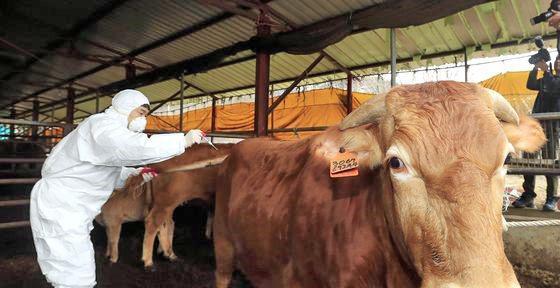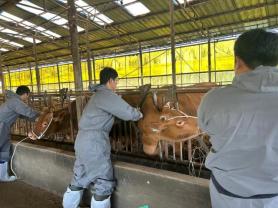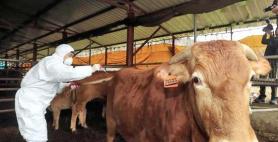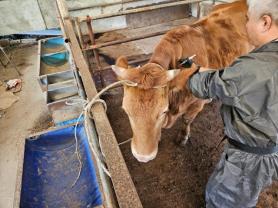
SEOUL -- South Korea has seen an outbreak of lumpy skin disease and had a total of 67 cattle farms infected in about ten days after the infectious cattle disease was reported in the country for the first time.
Lumpy skin disease (LSD) is a viral disease transmitted by blood-feeding insects such as flies, mosquitoes, and ticks. When a cow is infected with the virus, the animal would show symptoms of high fever, enlarged superficial lymph nodes, and multiple nodules, lumps measuring up to five centimeters (about two inches) on the skin.
Normally, LSD outbreaks take place during summer and in early autumn when the temperature is high and the air is humid. Most cattle can develop lifelong immunity after they recover from LSD, but many farmers use vaccines to prevent cattle from catching the disease. There was no official outbreak of LSD until the first reports of the disease in mid-October 2023.
The emergency headquarters for the control of LSD, operated by the government, said that the animal disease control tower decided to purchase more vaccines to stop the early-stage spread of the disease. Some 1.3 million doses of vaccines will be acquired by October 28 and 2.7 million doses will be acquired by October 31.
The emergency headquarters for LSD said that a total of 67 farms were reported as being infected with the cattle disease between October 20 and 31. According to the disease control tower, there were no newly reported LSD cases from 8:00 a.m. (2300GMT) to 2:00 p.m. on October 31. It was the first time a morning had passed without news of newly infected farms.
"We will have to closely monitor the rapidly changing situation to see if the spread of the disease has slowed down or not," an LSD control tower official said in a statement on October 31. "We are pushing to distribute vaccines in an effort to end the infection at its early stage," the official said.
Copyright ⓒ Aju Press All rights reserved.




